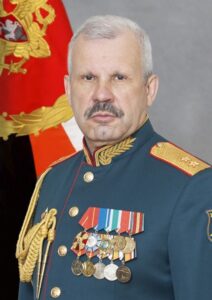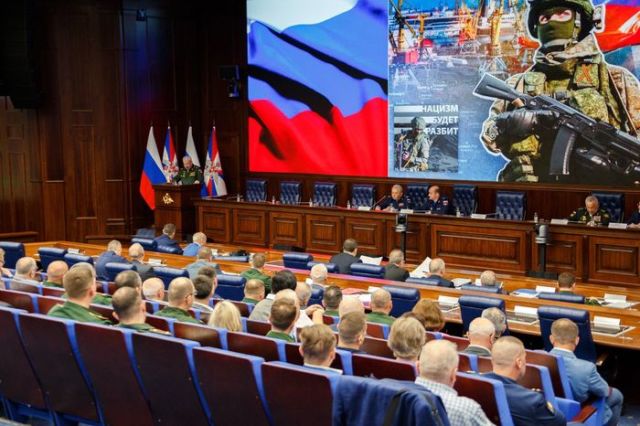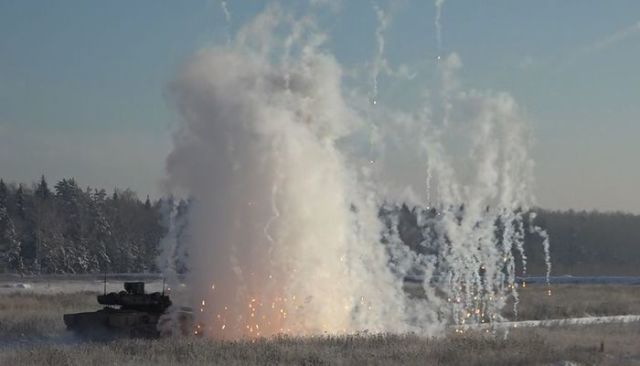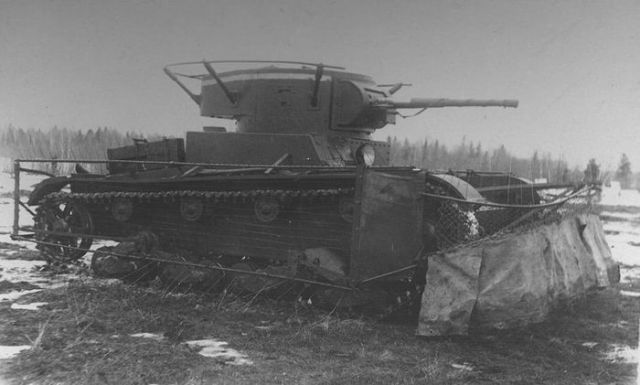The strong fusion of military scientific theory and practical combat experience is the key to the power and invincibility of our Armed Forces.
 |
| Vasily Trushin. |
| Source: redstar.ru |
Since ancient times, contradictions have arisen between different communities of people, which were often resolved through the use of force. With the development of society, in order to conduct armed struggle more effectively, there was an objective need for special knowledge required to solve military problems. Over time, this knowledge accumulated, systematized and improved, which naturally led to the emergence of a new type of activity – military scientific.
Today, there is no doubt that ensuring the military security of the country and its citizens is impossible without a deep scientific study of promising areas of construction, development, training, use and provision of the Armed Forces.
The Military Scientific Committee (VNK) of the Armed Forces of the Russian Federation plays a leading role in solving this important task.
On the eve of the Day of Russian Science and the 212th anniversary of the formation of the VNK, the Chairman of the Military Scientific Committee of the Armed Forces of the Russian Federation, Deputy Chief of the General Staff of the Armed Forces of the Russian Federation, Lieutenant General Vasily TRUSHIN tells Krasnaya Zvezda about the contribution of military scientists to strengthening the defense capability of our Fatherland.
– Vasily Viktorovich, tell us what is the history of the origin and development of Russian military science, where did it all begin? What traditions were laid down by outstanding military scientists of the past centuries?
– The military scientific thought of the Russian Army has been developing and improving for centuries. Thus, under Ivan the Terrible, the first statutes appeared in the Russian army. In 1700, under Peter I, a charter was developed, called the "Short Ordinary Doctrine", and in 1716 the "Military Charter" was published. However, as a separate branch of scientific knowledge, Russian military science originated in the middle of the XVIII – early XIX century.
By this time, Russian military leaders had formed views on military science as one of the most effective means of solving combat tasks. Prominent military theorists and military leaders Pyotr Alexandrovich Rumyantsev and Alexander Vasilyevich Suvorov, who wrote his famous "The Science of Winning", played a significant role in this case. The requirement set out in it "to teach troops what is necessary in war" is still the guiding principle of training troops.
The active development of scientific thought at that time predetermined the need to create military scientific bodies at the General Staff of the Russian Imperial Army. The practical implementation of these ideas was undertaken by the prominent military commander Mikhail Bogdanovich Barclay de Tolly. At his suggestion, by decree of Emperor Alexander I, a Military Scientific Committee was formed at the Ministry of War on February 8, 1812 (according to the new style). It is from this date that we are counting down the history of the current VNK.
The invaluable contribution to the formation of military science was made by the first chairman of the Military Scientific Committee, Lieutenant General Ivan Grigoryevich Gogel, Generals Fyodor Fedorovich Shubert, Nikolai Nikolaevich Obruchev, Nikolai Petrovich Mikhnevich and other talented military figures whose works formed new views on the nature of modern warfare.
Mikhail Vasilyevich Frunze made a significant contribution to the military theory of the Soviet Armed Forces. In his writings, the theoretical foundations of the Soviet military doctrine were developed for the first time, and an assessment of the nature of a possible future war as a war of engines was given.
The Great Patriotic War became a powerful impulse in the development of the revived national military science. One of the important tasks solved by the military scientific bodies of the General Staff of the Red Army, represented by the Department for the Use of War Experience, was the collection, generalization and analysis of materials on the study of combat operations. The experience gained in organizing this work made it possible to lay the foundation for further deployment of military scientific work in peaceful conditions.
The rapid development of armaments in the post-war period once again changed views on military science, in which new developments in the field of armaments, including jet aircraft, rocket science, radar, and nuclear weapons began to come to the fore.
Such a development of military science could not but affect the structure of the bodies responsible for its organization. In 1958, in addition to the Military Scientific Directorate of the General Staff, the Scientific and Technical Committee of the General Staff was formed. During the same period, numerous military research institutes responsible for the development of a particular type of weapons began to be established throughout the country.
Another turning point for military science was the end of the Cold War and the collapse of the Soviet Union. And even in these conditions, Russian military scientists continued to develop strategic weapons, aviation equipment and shipbuilding. The scientific and technical groundwork gained during that period made it possible to subsequently develop types of weapons, many of which are still relevant today.
Today we are at a new stage in the development of military science, due to the increasing need of the Armed Forces to improve operational skills and tactics, and the search for new ways to solve combat tasks.

Image source: redstar.ru
Scientific discussion on the improvement of military historical work. The National Defense Management Center of the Russian Federation. June 2023.
– What does the very concept of "military science" include? What is the content of this concept?
– Military science is a system of military scientific knowledge. Its structure is quite complex, just as its object, war, is complex and multifaceted.
The priority place in this system, of course, is occupied by the art of war, combining strategy, operational art and tactics. Research in the field of military art covers a wide range of issues related to the construction of the Armed Forces, planning, conducting and comprehensive support of military operations on a strategic, operational and tactical scale.
Military-technical science is of particular importance. It works to equip the Armed Forces with the most advanced weapons and military equipment, to achieve the superiority of Russian weapons over enemy weapons.
No less important are military special sciences, including military pedagogy and psychology, military law and military medicine, as well as military history.
Military science is an applied science. First of all, it is aimed at developing recommendations for solving practical tasks facing the Armed Forces and the State in the field of military security.

Image source: redstar.ru
Conducting tests of armored vehicles.
– What is the modern military-scientific complex of the Armed Forces? What are the trends and prospects for its further development?
– The military-scientific complex of the Armed Forces can be conditionally divided into two components. The first is university science, which includes scientific departments of more than 30 military universities. They mainly specialize in conducting operational and tactical research in the interests of developing the art of war. The second component is "institutional" science, concentrated in more than 20 research institutes and centers. Their tasks are to determine the prospects for the development of weapons and military equipment, the development of tactical and technical tasks for weapons samples, military scientific support for their development and conducting state tests.
The leadership of the Ministry of Defense of the Russian Federation, the heads of the central military administration bodies recognize the growing role of military science and scientific research, especially in the process of making key decisions on the construction, training and use of the Armed Forces, equipping them with modern weapons. The measures he is taking are a solid foundation for further building up the capabilities of military science. In 2015, the Minister of Defense approved the Concept of the development of the military scientific complex of the Armed Forces for a long-term period, the implementation of which (with some adjustments) continues today.
– What are the main tasks set for the national military science management body headed by you in modern conditions?
– Among the main tasks of the VNK is to identify issues that require a scientific approach, direct scientific resources to their implementation, as well as create the necessary conditions for the early implementation of the results into practice of the troops (forces). Their solution is carried out jointly with the military scientific and scientific-technical committees of the military administration. There are 25 of them in total. The military scientific, marine, scientific and technical committees are the "headquarters" of military science, the "drive belts" between military authorities and scientific structures.
I will focus only on the main activities of the VNK and the issues of their practical implementation. The first is the organization of scientific work. Central to its solution is the planning of scientific research in the interests of defense. It is based on a plan approved by the President of the Russian Federation for a five-year period and covering more than 350 areas of scientific research conducted by both research organizations of the Ministry of Defense and scientific institutions of other ministries and departments.
The second area of activity of the VNK is the development of a unified military–technical policy in the field of development and modernization of military equipment and its implementation in the formation of the state armament program and the state defense order. To do this, the committee analyzes global trends in the development of weapons, including the technologies used to create them. On its basis, the initial data for the development of the weapons system are formed, as well as the requirements for new models of military hardware are determined.
The work of the Scientific and Technical Council of the Ministry of Defense, chaired by the Chief of the General Staff, occupies a central place in the development of military-technical policy. At the meetings of the council, the most significant issues of the development of military art and armaments, proposals from military authorities for the opening of research and development work, as well as the progress of work already underway are considered.
It is important to organize and control military scientific support for R&D carried out in the interests of creating new types of weapons for the army and navy. The committee's specialists are also developing normative documents regulating the procedure for the development of military equipment and its adoption into service.
Another area of application of VNK's efforts is the organization of events for the development of the military-scientific complex of the Armed Forces. As part of its decision, the committee has developed and is constantly improving the methodological apparatus for evaluating the effectiveness and efficiency of both scientific organizations and each researcher individually.
It is especially necessary to focus on the task of the Military Scientific Committee for the organization of the study and generalization of combat experience.
In addition to these tasks, the VNK also organizes military historical work, publishing and scientific information activities in the Armed Forces.
– Vasily Viktorovich, how is the study of the experience of conducting military operations organized during the military operation? How quickly is it analyzed and implemented in specific management decisions, improvement and refinement of samples of weapons and military equipment?
– The study and generalization of the combat experience of the military is conducted from the very beginning of the operation. Units have been formed at the headquarters of associations, formations and military units to generalize combat experience, and officers have been appointed to organize this work.
In scientific organizations and universities, the study of combat experience is conducted in two directions: improving the tactics of troops and improving weapons and military equipment.
Within the framework of the first direction, military scientists study and summarize the experience of ongoing operations and the most instructive individual battles (combined arms, air, anti-aircraft, marine), reveal and analyze problems, search for solutions, develop recommendations on methods of warfare, the use of samples and weapons complexes, improve the organizational structure, clarify the requirements for military equipment.
The results of this work are promptly communicated to the troops in the form of newsletters, manuals, reference books and memos, and are introduced into military training programs and training at higher military educational institutions. Over the past year alone, more than 400 such documents have been developed and published.
Of course, its gave an impetus to the development of military science. The experience of the special military operation has shown that the existing strategic, operational and tactical views set out in our guidance documents are generally correct and in line with modern conditions.
Nevertheless, the practice of conducting military operations during military operations is constantly being filled with new content, methods and techniques of using weapons, methods of leading troops. The task of military science is to capture these changes, describe them reliably and make sense of them.
In the direction of improving weapons, information has been collected from military units and units that directly use these weapons on the battlefield. After all, until the weapon has been tested in real combat, it is impossible to fully judge its quality. Following this rule, each type of weapon is evaluated for its combat effectiveness, as well as recommendations for refinement and modernization. The assessment of the tactical and technical characteristics of foreign samples is carried out. So, since the beginning of the SVO, over 100 captured weapons have been analyzed.
Enterprises of the domestic defense industry refine weapons samples as soon as possible, then, together with specialized research institutes, tests and military-technical experiments are carried out: first - at the testing grounds of the Ministry of Defense, then – in combat conditions.
In this regard, the volume of tests conducted has increased significantly. The necessary improvements are immediately introduced into the production of serial samples, and are also taken into account when developing new military equipment. Thus, according to the results of this work, the defense industry enterprises, together with the Research Institute of the Ministry of Defense of the Russian Federation, have made changes to the design of more than 300 samples.
Examples include anti-drone and mine protection equipment installed on all Russian armored vehicles, camouflage kits, electronic warfare equipment in portable and mobile versions, and means to increase the autonomy of communication equipment.
I would like to note that in a number of cases, "technological surprise" was achieved during its operation – a state when the enemy simply does not understand by what means he is being hit, according to what technical principles our weapons work and, as a result, cannot organize an effective counteraction.
In general, the work on improving weapons has been debugged. The peculiarities of solving scientific problems in the conditions of ITS own have significantly changed the work of employees of military research institutes. Military scientists work closely with designers, spend more and more time at test sites, assembly points of damaged vehicles.

Image source: redstar.ru
Testing of the T-26 tank in a protective body kit. The scientific and testing armored vehicle range of the ABTU of the Red Army. 1935.
– Military science, of course, cannot exist and develop separately, outside the national system of scientific activity. What place does she occupy in it?
– It is extremely important for the research institutions of the Russian Ministry of Defense to be in constant contact with external scientific structures - institutes of the Russian Academy of Sciences, higher school organizations and public scientific organizations whose activities are more or less devoted to defense topics.
For example, at the end of 2023, the Government of the Russian Federation introduced a separate subprogram of fundamental and exploratory scientific research in the interests of national defense and state security, which is an integral part of the Program of Fundamental Scientific Research in the Russian Federation for the long-term period for 2021-2030.
Another applied area was the cooperation of the military department with the Foundation for Advanced Research. Within the framework of the agreement signed in 2014, in the interests of the Russian Ministry of Defense, more than 20 scientific and technical projects are being implemented to practice technologies that can increase the combat effectiveness of Russian weapons.
In turn, military universities and scientific organizations of ministries cooperate with the Academy of Military Sciences. Many members of the Academy are members of working groups and research teams to study the problems of strategic deterrence, the development of operational art, the analysis of wars and armed conflicts, as well as making long-term forecasts about the nature and scale of future wars. Among them, I would like to highlight the first vice-president of the Academy Nikolai Ivanovich Turko, vice-presidents Honored Scientist Valery Petrovich Baranov, Sergei Petrovich Belokon, Honored Military Specialist Alexander Vladimirovich Sergeantov, heads of AVN departments Valery Leonidovich Makhnin and Igor Valentinovich Bocharnikov.
– What is the approximate portrait of a modern representative of military science?
– A military scientist today is, as a rule, an officer with a specialized education and a degree in military or technical sciences, or working on a dissertation. He has the necessary knowledge, experience of service in the military and scientific units, is deeply immersed in the subject of research and is aimed at solving a scientific task or problem.
To be a professional in scientific activity means to have a breadth of knowledge. This is generally a tradition of the Russian scientific school. Another important quality of a military scientist is scientific integrity and impartiality. There are many such specialists in the scientific departments of the Ministry of Defense. They make up the golden fund of military science. Their number is growing every year. And naturally, the emphasis in this matter is on young people.
– And what is being done to attract young people to scientific activities in the interests of state defense?
– We have a number of mechanisms that ensure the selection and referral to the research Institute of the most gifted officers with a penchant for scientific activity. First of all, this is the adjunct of universities. Its total capacity is more than 1,300 officers.
I will separately highlight the scientific companies, the creation of which began by the decision of the Minister of Defense in 2013. Over the 10 years of their existence, they have transformed from experimental units into one of the full-fledged elements of the military scientific complex. To date, there are 17 such units. Of these, eight are part of the Military Innovative Technopolis "ERA", located in the city of Anapa.
In addition to the practically significant scientific results brought by the operators, scientific companies made it possible to form a personnel reserve not only for organizations of the Russian Ministry of Defense, but also for defense industry enterprises. Last year alone, the number of specialists who continued to work in the defense sector after completing their service in the scientific company amounted to 115 people.
– One of the forms of work of the VNK is the annual competitions of the Ministry of Defense. Tell us, please, how much do they contribute to increasing the prestige of military science? What other applications and competitions can not only military scientists take part in, but also the most talented military personnel and civilian personnel of the Armed Forces who serve and work not in universities and research institutes of the Ministry of Defense?
– Undoubtedly, an important area of development of the military scientific complex is the involvement of young specialists, their comprehensive support and motivation to conduct new research.
Since 2015, by decision of the Minister of Defense, a competition has been held among scientific works performed by young scientists of military scientific and educational organizations. The main criterion for participation is the age of applicants under 35 years old. In addition to the award and the special badge "The best young Scientist of the Ministry of Defense of the Russian Federation", the laureates of the competition get the opportunity to participate in other similar events.
One of them is a competition for the best scientific papers in the Ministry of Defense, which is also held by the Military Scientific Committee. Here, the struggle takes place between the author's teams of organizations of the military-scientific complex. Thus, the number of laureates annually is up to 50 people.
It is worth saying that the participation of military scientists is not limited to competitions held by the Military Scientific Committee. Representatives of research institutes and universities of the Ministry of Defense successfully participate in the competition for grants and awards at the federal level. For example, in 2023, Ivan Fisenko, an employee of the 12th Central Research Institute of the Russian Ministry of Defense, became one of the winners of the competition for the award of the President of the Russian Federation in the field of science and innovation for young scientists for research in the field of nuclear physics.
Participation in scientific competitions opens many doors for professional growth. So being a military scientist is not only interesting, but also honorable.
During 2023, essays on the winners of scientific competitions were published on the pages of the Red Star. Of course, this helped to increase the prestige and authority of military scientists. Many thanks to your newspaper and talented journalists for supporting military science.
– Vasily Viktorovich, you have the opportunity from the pages of the newspaper Krasnaya Zvezda to address veterans of scientific activity, active military scientists and congratulate them on the Day of Russian Science.
– On the eve of the celebration of the Day of Russian Science, I express my gratitude and appreciation to the veterans of the Armed Forces who devoted their lives to military science and laid the foundations for its further improvement. I sincerely thank the personnel of the scientific departments of the military administration, research organizations and higher military educational institutions of the Ministry of Defense of the Russian Federation for their loyalty to military science, their assigned work, and for their work for the benefit of the Motherland.
Special thanks to the officers and military scientists who perform their military and scientific duties in the zone of a special military operation.
I wish you all good health, success in solving scientific problems, further achievements in protecting our Homeland, and increasing the combat capabilities of our Armed Forces!
Oleg the TERRIBLE, "Red Star"
Photo from the archive of the VNK of the Armed Forces of the Russian Federation
